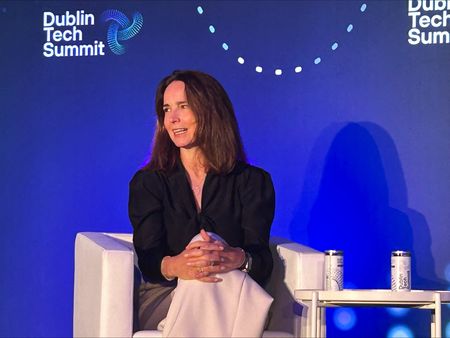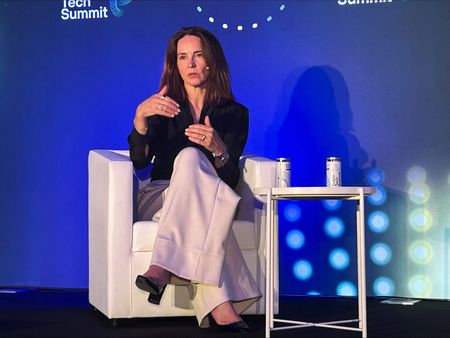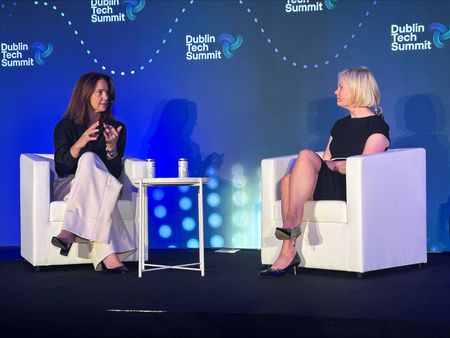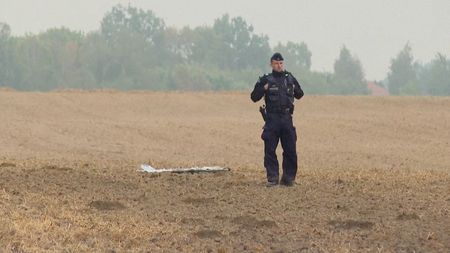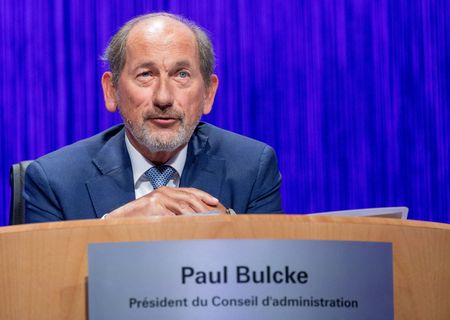By Conor Humphries
DUBLIN (Reuters) -OpenAI’s restructuring plans position it for a potential future IPO, but any such decision would depend on the mood in public markets as well as the readiness of the company, Chief Financial Officer Sarah Friar said on Wednesday.
OpenAI, in which Microsoft has invested more than $13 billion, outlined plans in December to convert its for-profit arm into a public benefit corporation (PBC), a structure designed to balance shareholder returns with social goals, unlike nonprofits, which are solely focused on public good.
The ChatGPT-maker dialed back the plan earlier this month, giving the nonprofit parent control of the PBC through a big shareholding, while still allowing the for-profit arm to raise more capital to keep pace in the AI race.
“A PBC gets us to an IPO-able event … if and when we want to,” Friar told the Dublin Tech Summit.
“Nobody tweet in this room that Sarah Friar just said anything about OpenAI ultimately going public,” she added. “I did not. I said it could happen.”
Asked what would influence a decision, Friar said that as with any company planning to launch on the stock market, the company and markets would have to be ready.
“You can show up at the altar all ready to go, and if the market’s not ready for you, yeah, you’re just out of luck,” she said.
“Which is why you have to build a company that can be sustainable and safe regardless of where the public markets are, how open that window is.”
To be a public company, “you definitely need some sense of predictability,” Friar added.
“The market will put up with a certain degree of unpredictability. Particularly when growth is high … but the market doesn’t really love it.”
To give a sense of the “massive” scale of capital that OpenAI might require, Friar said that while a 1 gigawatt data centre footprint costs about $50 billion, the company’s “appetite and ambition” over the next couple of years was to get closer to about 10 gigawatts.
Friar singled out the rapidly growing AI search market as a priority and said that while the company would seek efficiencies, its focus was on finding the next breakthrough product.
“The search market is becoming a big market,” Friar said.
“In that world, I don’t really want people spending an inordinate amount of time trying to save an extra 1% when I would rather they went out and kind of built the next state-of-the-art product.”
(Writing by Conor HumphriesEditing by Mark Potter and Elaine Hardcastle)

